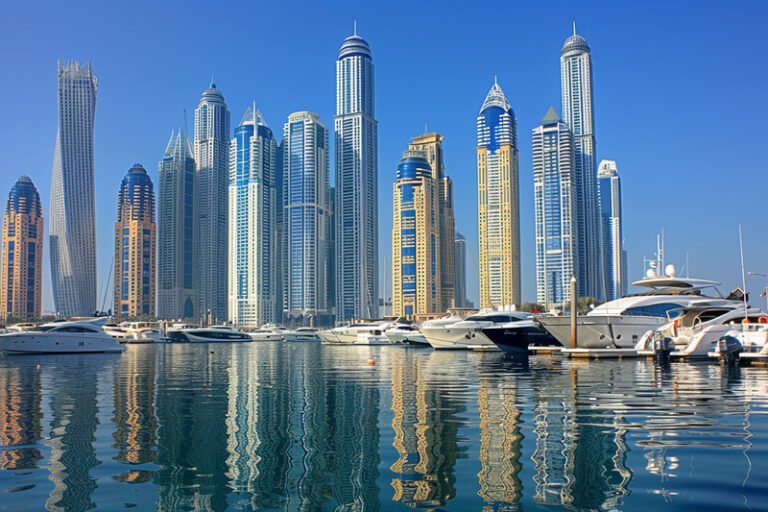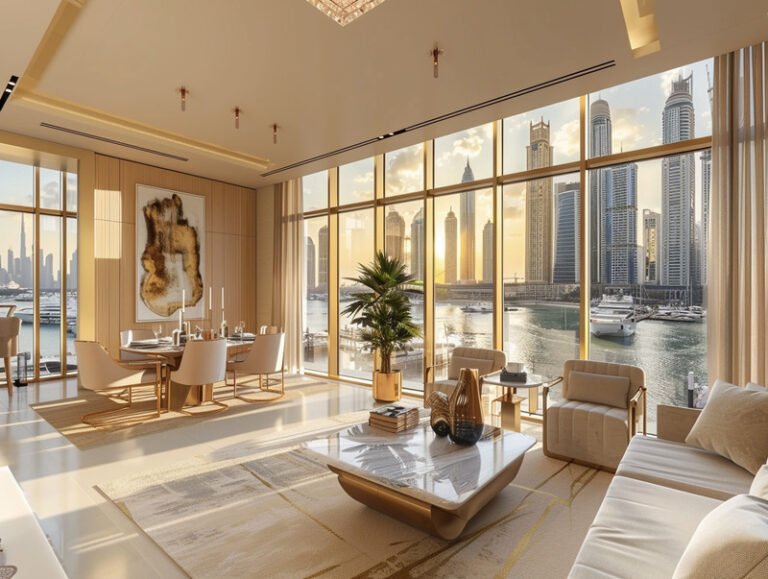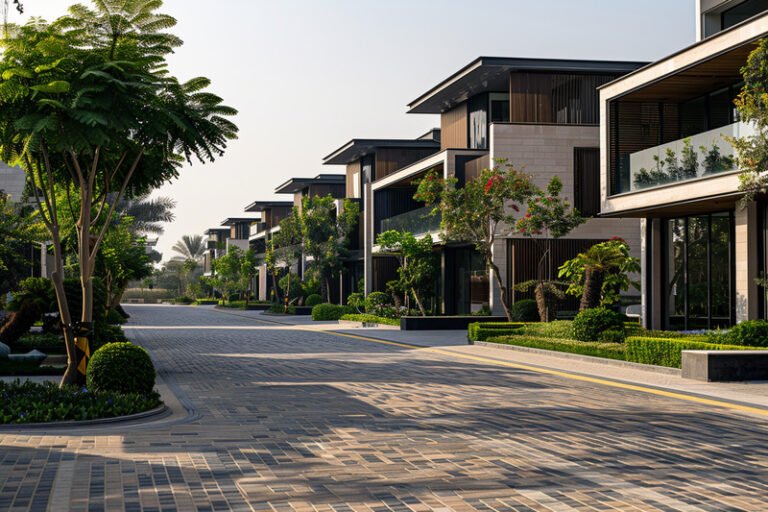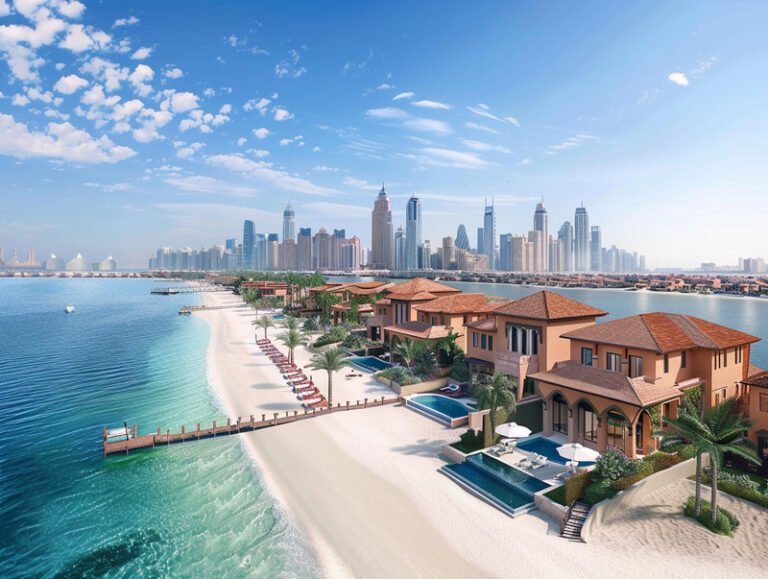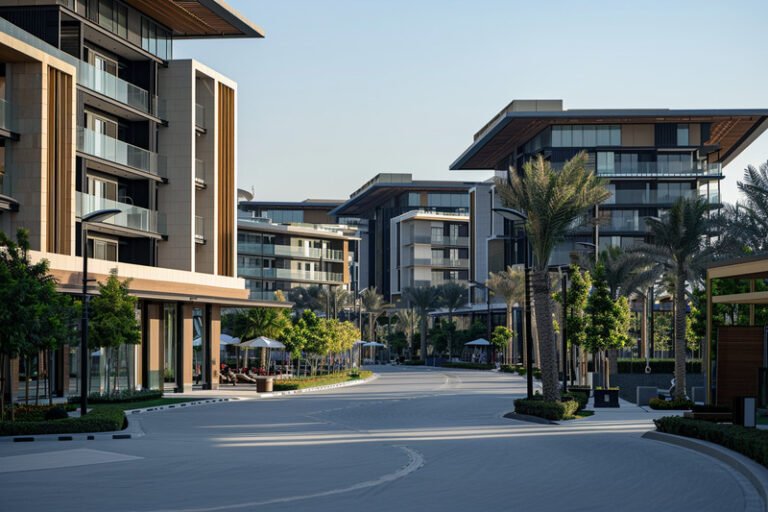How to Understand and Evaluate Property Prices in Dubai
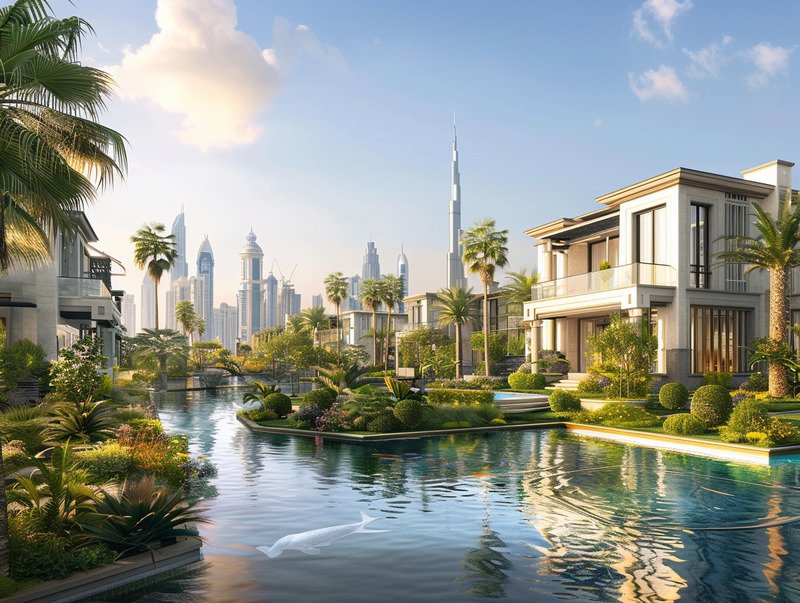
To understand property prices in Dubai, consider market trends influenced by global economic conditions, oil prices, and government policies. Location is critical; properties near business districts, waterfront areas, and public transportation hubs generally command higher prices.
Amenities like swimming pools, gyms, and proximity to schools or healthcare facilities also affect value. Compare various property types, from waterfront villas to urban apartments.
Conduct a comparative market analysis by examining recent sales of similar properties. By evaluating these factors, you'll gain insights into market dynamics and be better prepared to assess property prices accurately.
Market Trends
Dubai's property market trends show a dynamic landscape influenced by both global economic factors and local developments. Over the past few years, you've likely noticed fluctuations in property prices driven by various elements such as oil prices, geopolitical events, and economic policies.
Let us help you find the perfect property. Contact us to get started.
When oil prices rise, for example, there's often an increase in property demand as more capital flows into the region. Conversely, global economic downturns can lead to a decrease in foreign investment, impacting property values.
Locally, government initiatives and infrastructure projects play significant roles in shaping the market. Dubai has launched several projects aimed at boosting its real estate sector, such as the Expo 2020, which spurred a surge in property development and investment. Additionally, regulations like the introduction of long-term visas for investors and retirees have made the market more attractive.
You should also consider the impact of supply and demand dynamics. An oversupply of properties can lead to a buyer's market, reducing prices, while limited supply with high demand can drive prices up. By understanding these trends, you can make more informed decisions when evaluating property prices in Dubai.
Location Factors
While market trends shape the broader real estate landscape, where a property is located within Dubai can greatly impact its price. Dubai's diverse neighborhoods each offer unique characteristics that influence their desirability and, consequently, their property values. Proximity to key business districts, such as Downtown Dubai and Business Bay, is a significant factor. Properties in these areas often command higher prices due to the convenience of being close to major employment hubs.
Additionally, waterfront properties along the Palm Jumeirah, Dubai Marina, and Jumeirah Beach Residence are highly sought after. These locations offer scenic views and a luxurious lifestyle, which drives up property prices.
Another critical aspect is connectivity. Areas well-served by public transportation, like the Dubai Metro, typically see higher property values due to the ease of commuting.
Moreover, safety and community feel play essential roles. Gated communities with stringent security measures, such as Emirates Hills or Arabian Ranches, are often more expensive.
Lastly, the future development plans of an area can also affect property prices. Neighborhoods earmarked for significant infrastructure or entertainment projects tend to see appreciation in property value over time.
Understanding these location factors can help you make informed decisions when evaluating property prices in Dubai.
Amenities Impact
Amenities play a significant role in determining property prices in Dubai. When evaluating a property, you should consider the range and quality of amenities available. High-end properties often come with features like swimming pools, gyms, and landscaped gardens, which can substantially increase their value.
Furthermore, properties located near shopping centers, schools, and healthcare facilities are generally more attractive to potential buyers, leading to higher prices.
Public transportation accessibility also affects property values. Properties close to metro stations, bus stops, and other forms of public transit tend to command higher prices due to the convenience they offer.
In addition, security features, such as gated communities and 24/7 surveillance, can add to a property's appeal and, consequently, its price.
Recreational amenities, like parks, golf courses, and beaches, contribute to the desirability of a location. If a property offers easy access to these recreational spots, you can expect its price to be higher.
Besides, technological amenities, such as smart home features and high-speed internet, are becoming increasingly important. Properties equipped with these modern conveniences are likely to be valued higher.
Economic Conditions
In addition to amenities, economic conditions play a vital role in shaping property prices in Dubai. When evaluating property prices, you need to take into account factors like the overall economic growth of the region. Dubai's economy is closely linked to sectors such as tourism, trade, and real estate. A thriving economy generally leads to higher property prices due to increased demand.
Interest rates are another significant factor. Lower interest rates make borrowing cheaper, encouraging more people to invest in property, thereby driving up prices. Conversely, higher interest rates can dampen demand and stabilize or reduce prices. It's crucial to stay informed about the Central Bank of the UAE's policies, as these can directly impact mortgage rates.
Additionally, government policies and regulations can influence property prices. For instance, initiatives to attract foreign investment, such as visa reforms and incentives, can boost demand and elevate property values. On the other hand, restrictive policies might have the opposite effect.
Property Types
Dubai presents a diverse array of property types, each tailored to different needs and preferences. Whether you're in search of a high-rise apartment with breathtaking views, a spacious villa for your family, or a commercial space for your business, Dubai offers a wide selection.
The city is renowned for its lavish waterfront properties, particularly in locations like Dubai Marina and Palm Jumeirah, where you can discover both apartments and villas with top-notch amenities.
For individuals who favor a more suburban lifestyle, communities such as Arabian Ranches and Jumeirah Village Circle provide townhouses and villas with generous space and lush surroundings. These areas often feature community centers, parks, and schools, making them perfect for families.
If you're keen on an urban environment, Downtown Dubai and Business Bay offer a diverse range of apartments, from studios to penthouses, in close proximity to major business hubs and entertainment options.
Commercial properties are also plentiful, with choices varying from office spaces in business districts to retail spaces in vibrant shopping centers. Each property type comes with its own price range and investment potential, so it's crucial to take into account your specific needs and long-term goals when assessing your options.
Regulatory Environment
When evaluating your property options, it’s crucial to understand the regulatory environment governing real estate transactions in Dubai. The Dubai Land Department (DLD) oversees all property dealings, guaranteeing transparency and safeguarding both buyers and sellers. Before making a purchase, familiarize yourself with the key regulations. When considering a property purchase in Dubai, it’s important to work with a reputable real estate agent who is knowledgeable about the local regulations. Additionally, it’s prudent to seek legal advice to ensure that all paperwork and contracts are in accordance with DLD regulations. By taking these steps, you can navigate the property market with confidence and peace of mind.
First, know that non-UAE nationals can only buy property in designated freehold areas. These areas include popular spots like Downtown Dubai, Palm Jumeirah, and Dubai Marina. Make sure the property you're contemplating is within these zones if you're an international buyer.
Additionally, every property transaction must be registered with the DLD. This registration process involves paying a 4% transfer fee, which is typically divided between the buyer and seller.
You'll also need to take into account the cost of obtaining a No Objection Certificate (NOC) from the developer, which confirms there are no outstanding fees or disputes related to the property.
Comparative Analysis
A comparative analysis of property prices will help you identify the best value for your investment in Dubai's real estate market. This process involves examining various properties with similar attributes, such as location, size, and amenities, to determine their market value. By comparing these factors, you can gauge whether a property is competitively priced or overpriced.
Start by researching properties in the same neighborhood. Focus on recent sales data, which provides a realistic picture of current market trends. Look at properties with similar square footage and features to ensure an accurate comparison. Websites and real estate databases are valuable resources for obtaining this information.
Next, consider the age and condition of the properties. Newer or well-maintained properties might command higher prices, but they could also offer better long-term value. Additionally, evaluate the amenities and facilities available, such as pools, gyms, and security services, as these can have a significant impact on property prices.
Conclusion
Understanding and evaluating property prices in Dubai involves analyzing market trends, evaluating location factors, and considering the impact of amenities.
You should also take into account economic conditions, different property types, and the regulatory environment.
By conducting a comparative analysis, you can make informed decisions.
This approach guarantees you grasp the various elements influencing property values, enabling you to navigate Dubai's real estate market with confidence and clarity.
Let us help you find the perfect property. Contact us to get started.


